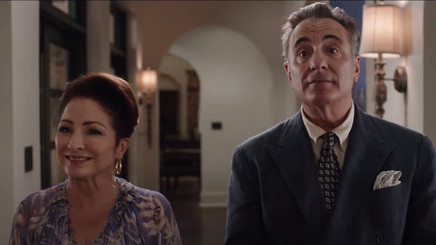Review: "Father of the Bride"
- Jennifer Green

- Jun 13, 2022
- 2 min read
This may be the most serious retelling yet of the classic family tale, and the updated setting and characters give it a whole new life.
There's definitely comedy in this version of Father of the Bride, but, from the very beginning, the tone is more "middle-age existential crisis" than "bumbling patriarch."
The movie opens with Garcia summarizing his rags-to-riches immigrant tale in a voiceover and concluding, "So if I did everything right, how the hell did I end up here?" Flash to Billy and Ingrid on opposite ends of a therapist's couch. Their pending divorce and marital issues are portrayed as realistic, not comedic, and both actors seem more comfortable in the dramatic range.
Their characters have built an enviable life, full of extended family, which the film embraces as both cultural and a device to get viewers invested in their reconciliation.
Sofia's family is Cuban American, and the in-laws-to-be are Mexican, a combo that provides some cultural humor, as well as "teachable moments."
The film confronts stereotypes in ways both funny (the clueless wedding planner pitching a flamenco-flamingo themed wedding, or Cuban and Mexican men hurling colloquial insults at each other) and insightful (Garcia correcting "immigrant" to "exile" and stressing "I don't know what Latinx means").
The characters are also grappling with a lot of generational change, including gender roles. When a Mexican character asks a group from the two families why they're all speaking English, it's a meta moment for the film, but characters continue to use English together even in private pairs. Still, some Spanish is thrown in, and not all of it subtitled.
That, together with Mexican director Gaz Alazraki and cinematographer Igor Jadue-Lillo's loving filming of Miami, suggests that the story, while universal, is playing directly to a Latino audience. The Latin jazz soundtrack is a bonus.
Read the full review at Common Sense Media.
Images courtesy of HBOMax.








Comments